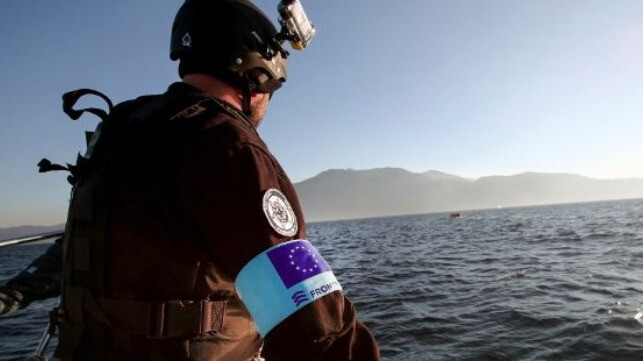EU Ombudsman Calls for Reforms in EU Coast Guard in Wake of 2023 Tragedy

The European Union’s Ombudsman issued a report critical of the handling of the 2023 migrant boat tragedy in the Mediterranean where more than 600 people are thought to have drowned. It is also questioning more of the fundamental issues related to the operations of the EU’s Border and Coast Guard agency Frontex.
The report finds that the EU’s Border and Coast Guard Agency is unable to fully fulfill its fundamental obligations and is too reliant on member states. It calls on EU legislatures both to investigate the handling of the migrant crisis in the Mediterranean and to address the fundamental rights gap for Frontex.
Frontex describes its mission as supporting and coordinating the efforts of member states for border security and cross-border crime. While the agency has extensive resources when it comes to maritime situations, the report highlights Frontex operates in support of member state agencies which must request assistance and can also redirect Frontex. Previous reports have accused individual states of sending Frontex away or refusing its resources while efforts were made to “push back” migrants.
“Frontex includes ‘coast guard’ in its name, but its current mandate and mission clearly fall short of that,” concludes Ombudsman Emily O’Reilly in the recently released report. “If Frontex has a duty to help save lives at sea, but the tools for it are lacking, then this is clearly a matter for EU legislators.”
O’Reilly’s investigation was one of several launched after a migrant boat named Adriana sunk last year. Greece’s Ombudsman and the Greek Naval Court are still investigating the incident but the Hellenic Coast Guard declined an internal review despite accusations that its boat contributed to the sinking and covered up its actions by seizing survivors’ cellphones.
The boat had been identified as a risk by Italian authorities, Frontex, and international aid groups after it left Libya on June 10 overcrowded with approximately 750 people including children. The vessel was in Greece’s region and four days later foundered with only around 100 people saved. Approximately 80 bodies were recovered.
While looking at the actions of Frontex as they related to the Adriana, the Ombudsman also investigated the agency’s response in other maritime emergencies, its mandate, and its structure. The report concludes that Frontex has no internal guidelines on issuing emergency signals and that there is a failure to ensure fundamental rights monitors are sufficiently involved.
In the case of the Adriana, a Frontex surveillance plane spent 10 minutes over the vessel on June 13 during a standard maritime surveillance patrol. It shared video footage and information about the boat’s conditions and sea state with the Italian and Greek authorities. Frontex highlighted the overcrowding and that no lifejackets were visible, but concluded the boat was not in immediate danger and did not issue a Mayday. Frontex says it believed Greece was handling the situation.
The report acknowledges it is contested if a Mayday should have been issued and if it would have prevented the tragedy. An internal report at Frontex however concluded while the agency complied with its obligations, in the future similar cases should be more thoroughly assessed.
Frontex made four additional offers of assistance on June 13 and 14 to the Greek authorities but received no reply. A second pre-planned surveillance on June 13 was diverted and Frontex did not return to the Adriana until after the vessel was lost. Under the current regulations, Frontex needed Greek permission to go to the location of the Adriana.
“It is not unlikely that there will be a repeat of the Adriana tragedy unless there are significant changes to the legal and operational framework for responding to maritime emergencies,” concludes the Ombudsman. The report observes boats in distress carrying refugees and asylum seekers can not as it now stands rely on proactive SAR operations at the EU level.
The Ombudsman has no legal authority to require changes but writes the incident should cause wider reflections on the changes needed to demonstrate the EU’s commitment to saving lives at sea. A request was made for Frontex to resolve internal issues, while the report calls on the EU to establish an independent commission to assess the reasons for the large number of deaths in the Mediterranean. The report also wants to consider whether Frontex should suspend or terminate activities when a member state has persistent violations of fundamental rights.
The Ombudsman calls on EU legislators to reflect on and address the clear fundamental rights gap in the way the system operates today.
No comments:
Post a Comment